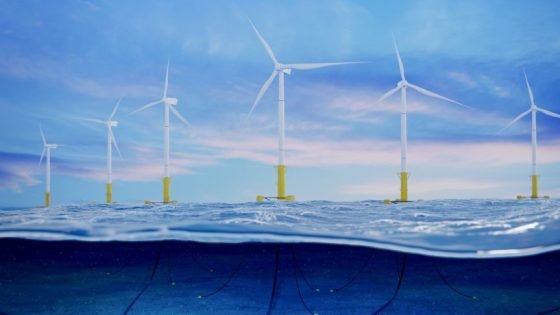Lack of policy and investment stability putting net zero at risk, experts tell MPs

Small modular reactors (SMRs) and floating offshore wind will only be successfully deployed at scale in the UK if the government supports the creation of sustainable supply chains through policy stability and long-term investment windows.
Representatives of Associated British Ports (ABP), Rolls-Royce SMR and Siemens Energy spoke about the challenges they face with helping the UK to decarbonise electricity in front of the Energy Security and Net Zero Committee on 13 March.
The committee is holding an inquiry into securing the domestic supply chain for the electricity generation which will be needed as part of the country’s transition to net zero.
The government’s Civil nuclear: Roadmap to 2050 strategy states its “long-term ambition is the deployment of fleets of SMRs,” and Rolls Royce SMR is a key player in the UK’s nascent SMR sector.
ABP head of offshore wind Andy Reay said: “Having a pipeline of projects is absolutely critical.
“We need to see a consistent, regular pipeline of projects becoming available in the market, specifically in terms of offshore wind and floating offshore wind, to ensure that our potential customers who are the supply chain organisations and the tier one fabricators and manufacturers, so that they have the confidence to then use our facilities.”
Reay went on to share optimism about the plans for floating offshore wind farms off the southwest of England in the Celtic Sea.
Reay said “we’re starting to see [a pipeline of projects] emerge in the Celtic Sea in the form of the Crown Estate’s 4.5 GW auction process which has just kicked off.
“We are looking at how we can invest in excess of £500M in our port in that region, Port Talbot, to support the supply chain and those developers to deploy that 4.5GW.”
Unfortunately, “the port infrastructure in the UK will struggle to meet the loading requirements and the capacity requirements” of new floating offshore wind turbines, according to Reay, referring to near future developments.
Moving on to SMRs, Rolls-Royce SMR director of corporate and government affairs Alastair Evans said: “We’ve got a once-in-a-generation opportunity with Rolls-Royce SMRs and SMRs as a whole, we’ve got a blank sheet of paper on which we can design what the supply chain needs to look like and how we can most efficiently and effectively ensure that the UK secures its maximum opportunity for the deployment off SMRs at home and in our project through export.
“It’s a significant market. It’s estimated at £250bn plus globally and we are talking to multiple countries about potential opportunities.
“This is an opportunity to revitalise the UK supply chain, and we want to create an enduring supply chain.”
Evans went on to warn MPs projects require higher levels of certainty.
Referring to his time working at NuGen Ltd in the mid-2010s on the proposed Moorside nuclear power plant in west Cumbria, he said “I’ve worked in the large nuclear space in a project that didn’t go forward. We spent four or five years preparing the supply chain, asking them to invest, preparing their codes and standards, and investing in their abilities.
“And those projects didn’t go forward. We marched the supply chain up the hill and then pulled the rug from under them. We cannot do that.”
Like what you’ve read? To receive New Civil Engineer’s daily and weekly newsletters click here.
Source link





